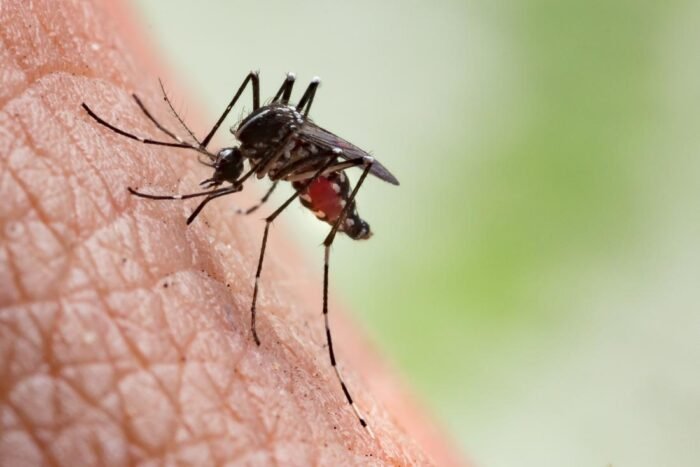Malaria: Do MDAs contribute to transmission through their activities?
By Vivian Ihechu, News Agency of Nigeria
Malaria is endemic in Nigeria and a leading cause of death in many countries. Children and pregnant women are the most affected groups.
To achieve more significant progress in the fight against malaria in Nigeria, analysts believe that there should be changes in approach.
According to Dr Akpaka Kalu, there is also the need to adopt technologies to look at how best to maximise investment efficiency and impact.
Kalu is the Team Lead, Strategic Planning and Policy, Communicable and Non Communicable Cluster (UHC/CND), World Health Organisation (WHO), African Region.
Kalu argues that activities of Ministries, Departments and Agencies (MDAs) contribute to malaria transmission.
“To make more impact in the war against malaria, there is need to have rethink of our model and adopt technologies to look at how best to maximise investment efficiency and impact.
“We need to do more and achieve more with available resources, and it is possible because technology is available, resources are limited.
“We have the motivation to maximise technology to also maximise efficiency of our investment.
“We also need to leverage resources from the private sector and non-health sector,’’ he advises.
Kalu argues that some MDAs, in carrying out their activities, contribute to transmission of malaria.
“For instance, ministries of works are involved in road constructions. When they are doing those road constructions, the earthworks they do, create breeding sites.
“Ministries of works may not know that they are aiding in transmission of malaria through their very good initiatives, ” he argues.

The team lead also points out that, in the mining sector, the Federal Ministry of Mines, when digging grounds during dry season, leaves them open, and during rainy season, mosquitoes breed on the mining sites and transmit malaria.
“The Ministry of Mines also needs to know that it contributes to malaria transmission.
“ Even in the agriculture sector, through irrigation projects, you move water to where there was no water and you expand potential for breeding of mosquitoes that transmit malaria.
“Therefore, irrigation projects also lead to increase in malaria transmission,’’ he says.

Kalu is convinced that such projects should pass through the ministry of health for necessary approvals to safeguard the health of the citizens.
“They all need to work with the ministry of health to understand how they are contributing to malaria transmission and what they should do to help in malaria control as well as invest their resources to control malaria.
“That way, you are improving domestic finance for malaria by leveraging resources from mining sector that messes up malaria control, works sector that messes up malaria control and even agriculture sector that is busy working on irrigation projects.
“There are many non-health sectors that contribute to malaria through their good initiatives; that is why we do health impact assessment,” he says.
According to Kalu, if health impact assessment is not done before approval for such projects, the defaulting MDAs should be made to present their containment strategies.
According to him, by so doing, the MDAs will be made to see their contributions to malaria transmission and be made accountable and ensure they commit to malaria control measures.
“If they did, then, they must have been told this irrigation project would lead to increase in malaria transmission.
“Therefore, before we approve this irrigation project, you need to give us a plan for control of malaria. That is what to do.
“In fact, it should be law that no industry, no factory, no construction, no irrigation project should be approved without the signature of the minister of health, because health is at the centre of development.
“We are not saying you shouldn’t have irrigation projects, we are not saying you should not build roads. We are saying that you should have containment measures in place,’’ he says.
The team lead believes that leveraging resources from the private sector and non-health sector to fight malaria is helpful.
Kalu adds that efforts from private and non-health sectors to fight malaria can be incentivized.
He emphasises that donations from private and non health sectors toward malaria eradication should be tied to impact.
“What I think we need to do is to launch a scheme such as: ‘Adopt a district, adopt a local government area and make it malaria-free’.
“For instance, if you identify malaria high-risk districts or LGAs, you define what needs to be done to make those districts/ LGAs malaria-free.
“Then, you develop investment or incentive packages for the private sector.
“You can say: Bank A, you have a branch in this local government area. If you can invest this much, you will contribute to making this LGA malaria-free.
“We can give you these incentives – for instance, you can paint all the hospitals in this area your bank’s colour, we give you tax rebates, you put up a billboard in the LGA.
“These are some ways to go. They call them thinking malaria,’’ Kalu asserts. (NANFeatures) www.nannews.ng
Edited by Ijeoma Popoola
***If used, please credit the writer and the agency **
Published By
Has also recently published
 Economy/BusinessJuly 3, 2025Jason Miller outlines Trump’s Africa trade vision
Economy/BusinessJuly 3, 2025Jason Miller outlines Trump’s Africa trade vision General NewsJuly 3, 2025Structured finance evolving to meet Africa’s changing economic landscape – Oramah
General NewsJuly 3, 2025Structured finance evolving to meet Africa’s changing economic landscape – Oramah HealthJuly 3, 2025Lawmakers call for end to foreign dependencies in health financing
HealthJuly 3, 2025Lawmakers call for end to foreign dependencies in health financing Culture & TourismJuly 3, 2025Don calls for investment in tourism to reduce oil dependency, boost economy
Culture & TourismJuly 3, 2025Don calls for investment in tourism to reduce oil dependency, boost economy




